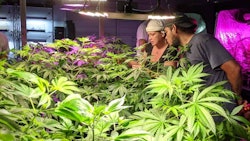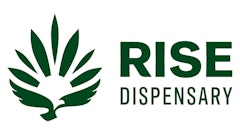CHICAGO, Illinois, November 26, 2021 - PRESS RELEASE - Verano Holdings Corp. (Verano), a multi-state cannabis company, announced the opening of a new MÜV Florida dispensary located at 4450 West New Haven Avenue in Melbourne. The retail storefront opened with a Black Friday grand opening event on Nov. 26 at 10:00 a.m., marking the 39th MÜV dispensary in the state and 90th nationwide for Verano.
Melbourne is a destination for diverse tourists and enjoys a reputation as a surfing hub for athletes and spectators alike. The city and surrounding Space Coast beaches are often referred to as the “East Coast Surf Capital of the U.S.,” given the region hosts many preeminent annual surfing competitions that attract visitors from across the nation and the state. As a demonstration of their commitment to providing a convenient and reliable experience for Florida patients, MÜV dispensaries feature online menus for effortless browsing of their extensive product selection. For additional convenience and accessibility, patients can choose to order ahead at muvfl.com for express in-store pickup or take advantage of home delivery service that is available across the state within a 20-mile radius of MÜV storefronts.
“Melbourne’s location on Florida’s beautiful Space Coast features a vibrant and active community that we’re thrilled to join,” said John Tipton, Verano president. “MÜV Products were developed to help Floridians of all ages and lifestyles stay active and moving. With our range of topicals, transdermals, and various oral and inhalation product formats, we are looking forward to welcoming medical cannabis patients from across the Melbourne area to our magnificent new MÜV dispensary.”
MÜV offers one-on-one consultations both in-store and virtually, at no cost to the patient. MÜV’s comprehensive product selection includes MÜV Wana Soft Chew edibles, chocolates and lozenges, flower, pre-rolls, an array of vaporizer pens, concentrates, metered-dose inhalers, topicals and oral sprays; along with patented encapsulation formulations in its EnCaps capsules, tinctures, 72-hour transdermal patches and transdermal gels.
For more information about the new Melbourne medical cannabis dispensary, including hours and available MÜV products, visit muvfl.com.

























